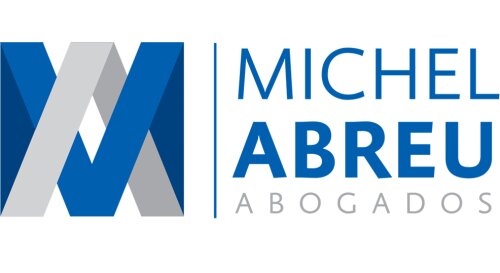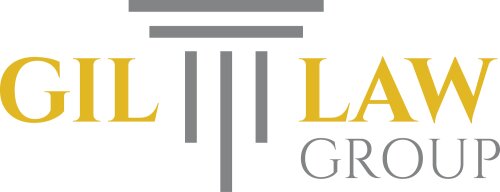Best Financial Services Regulation Lawyers in Punta Cana
Share your needs with us, get contacted by law firms.
Free. Takes 2 min.
List of the best lawyers in Punta Cana, Dominican Republic
About Financial Services Regulation Law in Punta Cana, Dominican Republic
Financial services regulation in Punta Cana, as part of the Dominican Republic, is primarily governed by laws and regulations established by the Dominican government. The focus is on safeguarding the financial system's stability, ensuring transparency, and protecting consumers. The Monetary and Financial Law (Law No. 183-02) provides the foundational framework, encompassing banking, securities, insurance, and other financial services. These laws aim to foster a robust financial environment by controlling market entry, overseeing financial entities, and ensuring compliance with international standards.
Why You May Need a Lawyer
There are several reasons why you might need a lawyer specializing in financial services regulation in Punta Cana:
- Business Formation: Establishing a new financial service or institution requires navigating complex regulatory requirements.
- Compliance: Ensuring ongoing compliance with local regulations is critical and can be intricate without expert guidance.
- Dispute Resolution: Legal disputes can arise from consumer complaints or regulatory breaches.
- Licensing: Obtaining necessary licenses for operating financial services can be daunting without legal expertise.
- Cross-Border Transactions: Conducting international financial transactions often involves additional compliance challenges.
Local Laws Overview
Several key aspects of local laws significantly impact financial services regulation in Punta Cana:
- Monetary and Financial Law: Lays down the general provisions for financial operations and establishes supervisory institutions like the Superintendency of Banks.
- Securities Market Law (Law No. 19-00): Regulates activities related to investment offerings, aiming at protecting investors and maintaining market integrity.
- Anti-Money Laundering Regulations: Establishes stringent compliance requirements for financial entities to prevent illegal transactions.
- Banking Regulations: Financial institutions are subject to comprehensive rules on capitalization, reporting, and consumer protection.
Frequently Asked Questions
What is the role of the Superintendency of Banks?
The Superintendency of Banks is responsible for the supervision and regulation of financial entities to ensure their stability and compliance with laws.
Do foreign financial institutions face additional regulations?
Yes, foreign institutions must comply with the same regulations as local entities and may face additional scrutiny related to cross-border activities.
How can I obtain a financial services license in the Dominican Republic?
Obtaining a license involves submitting detailed applications to relevant authorities, demonstrating compliance with legal standards, and acquiring necessary approvals.
What are the penalties for non-compliance with financial regulations?
Penalties may range from fines and sanctions to suspension or revocation of licenses, depending on the nature and severity of the non-compliance.
How are consumer rights protected in financial services?
Consumer rights are protected through laws requiring transparency, fair practices, and mechanisms for addressing grievances and disputes.
Can financial regulations change, and how can I stay informed?
Regulations can evolve, reflecting changing market conditions. Staying informed requires consistent review of updates from regulatory authorities and liaising with legal experts.
What measures exist to prevent money laundering?
Financial institutions must implement rigorous customer verification processes, transaction monitoring, and reporting of suspicious activity as part of anti-money laundering laws.
Are there any incentives for fintech companies?
The Dominican government encourages fintech innovation, providing various incubators and supportive regulatory environments to stimulate growth.
How does data protection work in financial services?
Financial entities must adhere to data protection regulations ensuring the confidentiality and integrity of client information through robust security measures.
What should I consider before entering the Dominican financial market?
Potential entrants should assess market conditions, regulatory requirements, local partnerships, and risk management strategies.
Additional Resources
- Superintendency of Banks: Primary regulatory body for banking activities.
- Superintendency of Securities: Governs securities and investment markets.
- Financial Regulation Department of the Ministry of Finance: Provides guidance on policy and regulatory updates.
- Dominican Bar Association: Can assist in finding specialized legal counsel.
Next Steps
If you require legal assistance in the field of financial services regulation, consider these steps:
- Research: Gather information about your specific needs and the applicable regulations in your area of interest.
- Consult a Specialist: Seek advice from a lawyer or legal firm specializing in financial services regulation to gain insights and tailored guidance.
- Prepare Documentation: Ensure that you have all necessary documents and information ready for legal processing or consultations.
- Engage with Authorities: Reach out to relevant regulatory bodies for confirmatory advice and official procedures.
- Continuous Review: Keep abreast of changes in the regulatory landscape to maintain compliance and optimize operations.
Lawzana helps you find the best lawyers and law firms in Punta Cana through a curated and pre-screened list of qualified legal professionals. Our platform offers rankings and detailed profiles of attorneys and law firms, allowing you to compare based on practice areas, including Financial Services Regulation, experience, and client feedback.
Each profile includes a description of the firm's areas of practice, client reviews, team members and partners, year of establishment, spoken languages, office locations, contact information, social media presence, and any published articles or resources. Most firms on our platform speak English and are experienced in both local and international legal matters.
Get a quote from top-rated law firms in Punta Cana, Dominican Republic — quickly, securely, and without unnecessary hassle.
Disclaimer:
The information provided on this page is for general informational purposes only and does not constitute legal advice. While we strive to ensure the accuracy and relevance of the content, legal information may change over time, and interpretations of the law can vary. You should always consult with a qualified legal professional for advice specific to your situation.
We disclaim all liability for actions taken or not taken based on the content of this page. If you believe any information is incorrect or outdated, please contact us, and we will review and update it where appropriate.










